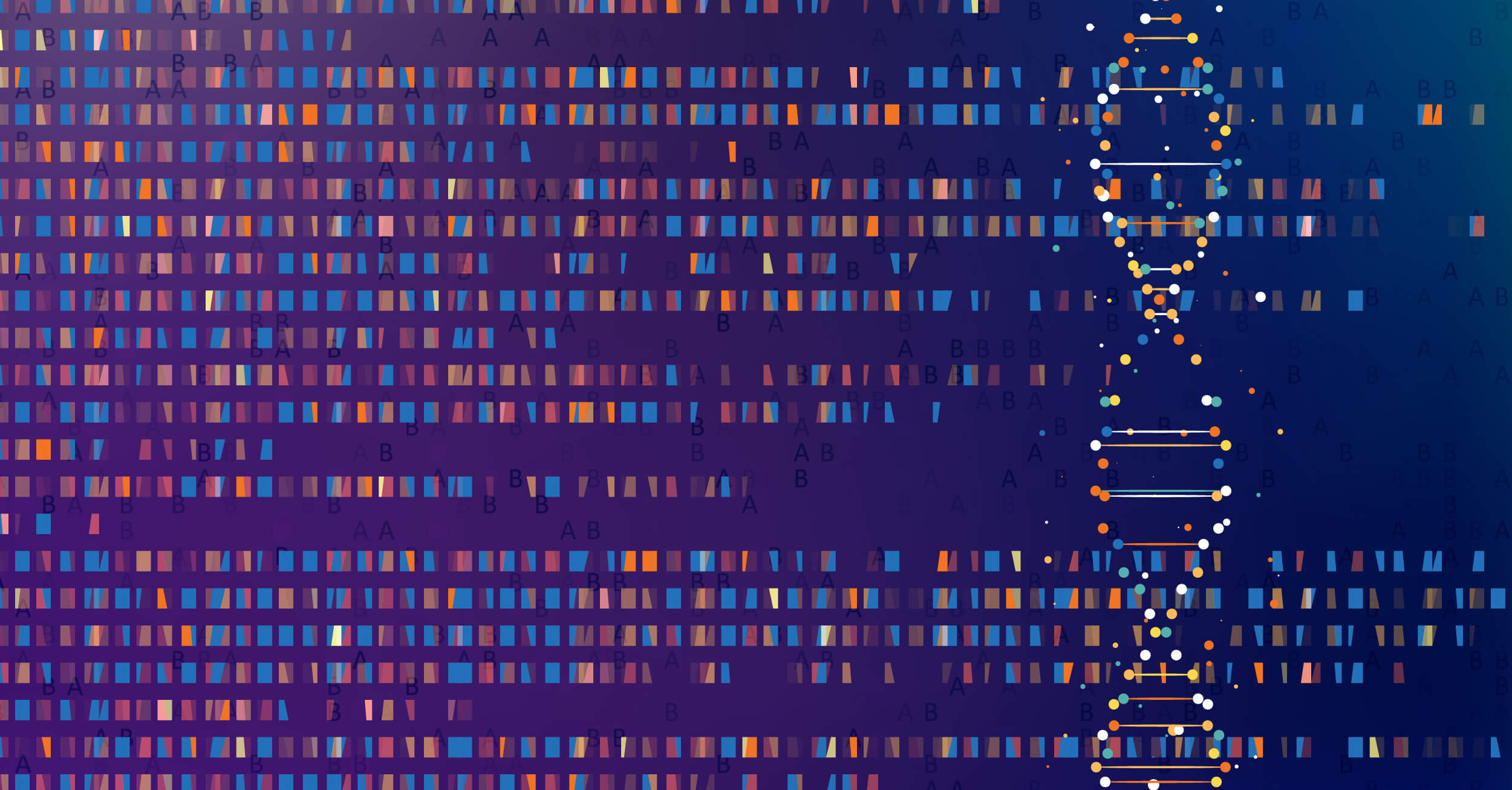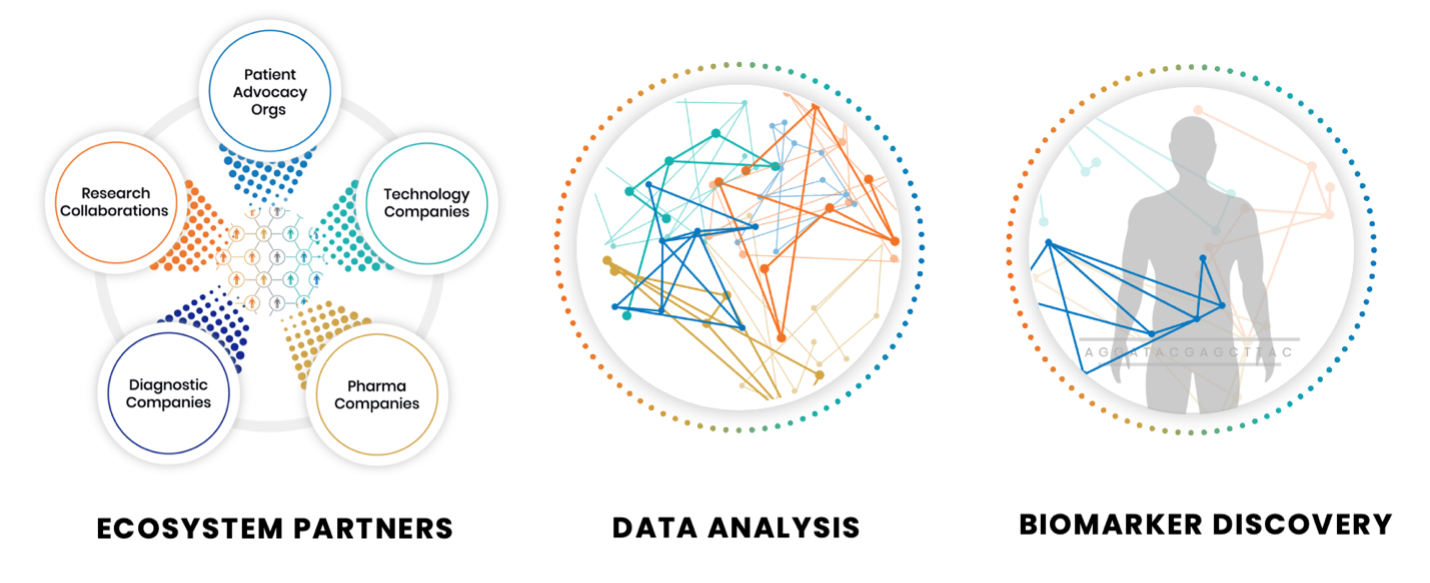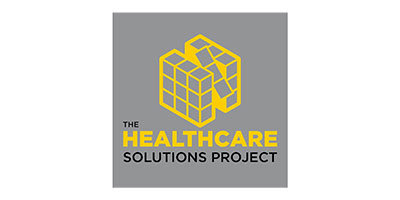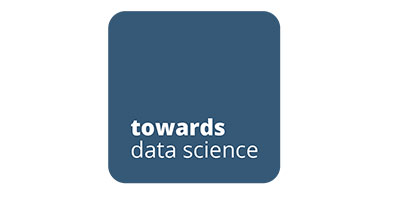
Decode Health Biomarker Discovery Platform Advances Findings in MS and NMO
Decode Health deployed its biomarker discovery platform, incorporating machine learning, to provide new insights into multiple sclerosis (MS) and neuromyelitis optica (NMO). The Decode platform identified disease-specific RNA biomarkers and connections between RNA expression profiles, neurofilament light chain levels, and immune repertoires that can be used to develop novel diagnostics or therapeutics. Discover how AI can improve the diagnosis, monitoring, and treatment of complex diseases.
Article:
Fostering innovation is essential to advancing the understanding and treatment of complex diseases. A collaborative ecosystem of research partners, diagnostic and technology companies, providers, and patient advocacy organizations is essential to accelerate healthcare innovations that support effective and efficient biomarker discovery programs. Decode Health’s robust ecosystem of healthcare partners, combined with the Decode team’s know-how and expertise in applying artificial intelligence (AI) and machine learning (ML) methods, has fueled the creation and continued advancement of the Decode biomarker discovery platform. In collaboration with Quest Diagnostics and the Accelerated Cure Project, the Decode team recently leveraged the platform to advance neuroinflammatory disease research and differentiate multiple sclerosis (MS) and neuromyelitis optica (NMO).
MS is a complex and often unpredictable disease that presents challenges in diagnosis, treatment, and prognostication. Differentiation from other inflammatory neurological conditions, such as NMO, is challenging due to overlapping clinical presentation but critical due to distinct treatment strategies for each disease. Decode offers a faster, more efficient alternative to traditional research methods to unravel the biological underpinnings of complex diseases. Utilizing an advanced data analytics platform with RNA-sequencing and clinical data, Decode identified specific RNA biomarkers to differentiate MS and NMO in addition to unique immune repertoires and biomarker signatures of MS and NMO patients. Relationships were discovered between gene expression profiles and clinical biomarkers of neurodegeneration [neurofilament light chain (NfL) levels] and NMO diagnosis [aquaporin-4 (AQP4) antibody status]. This level of analysis is crucial for differentiating complex diseases, providing the ability to detect and further characterize or subtype a disease, and opening new avenues for personalized treatment strategies.
This research, recently presented at multiple national and international meetings, used RNA-sequencing data from whole blood samples to accurately identify patients with demyelinating diseases at the earliest stages, differentiating relapsing-remitting MS (RRMS) from NMO patients with > 90% accuracy using RNA expression profiling and > 88% with unique immune repertoires. Biomarker signatures, which included a variety of novel protein-coding and non-coding RNAs, were associated with immune system regulation, RNA processing, and viral gene expression. Novel druggable targets, including candidate small molecule therapeutics, were also discovered.
Through subsequent analyses with MS and NMO cohorts, Decode’s platform was also deployed to identify:
- Candidate RNA biomarkers to characterize MS subtypes of patients, including RRMS, secondary progressive MS, and primary progressive MS
- Unique RNA expression signatures for NMO patients with varying AQP4 antibody status
- Distinct RNA profiles for RRMS and NMO patients that exhibit high versus low levels of plasma NfL, highlighting prospective sub-groups of patients with the highest NfL levels
Detecting and tracking transcriptional changes could lead to the development of new tools to advance the diagnosis, monitoring, or treatment of MS and NMO. Future studies are planned to longitudinally assess transcriptional differences in patients relative to plasma NfL levels and MRI results to further identify active disease events and use this information to predict imminent disease flare-ups before neurological damage.
By leveraging RNA-sequencing and an AI-based advanced analytics platform, Decode’s team was able to discern intricate patterns of gene expression and immune cell activity, offering new insights into the pathophysiology of MS and NMO. With this platform, Decode executed complicated scientific methodology and analysis in a fraction of the time often required for such in-depth endeavors, underscoring the platform’s potential as a tool for rapid and reliable biomarker discovery. The implications of this work are significant, paving the way for enhanced diagnostic accuracy and identifying novel therapeutic targets in complex diseases.
Additional Notes:
by accelerating the discovery process, Decode Health provides invaluable clinical insights in a fraction of the time it takes for traditional research methods
-this efficiency is a game-changer, offering the potential to transform patient outcomes through early diagnosis and tailored treatment plans
platform stands as a testament to the possibilities of precision medicine, where data-driven insights lead to breakthroughs in disease understanding and management



















